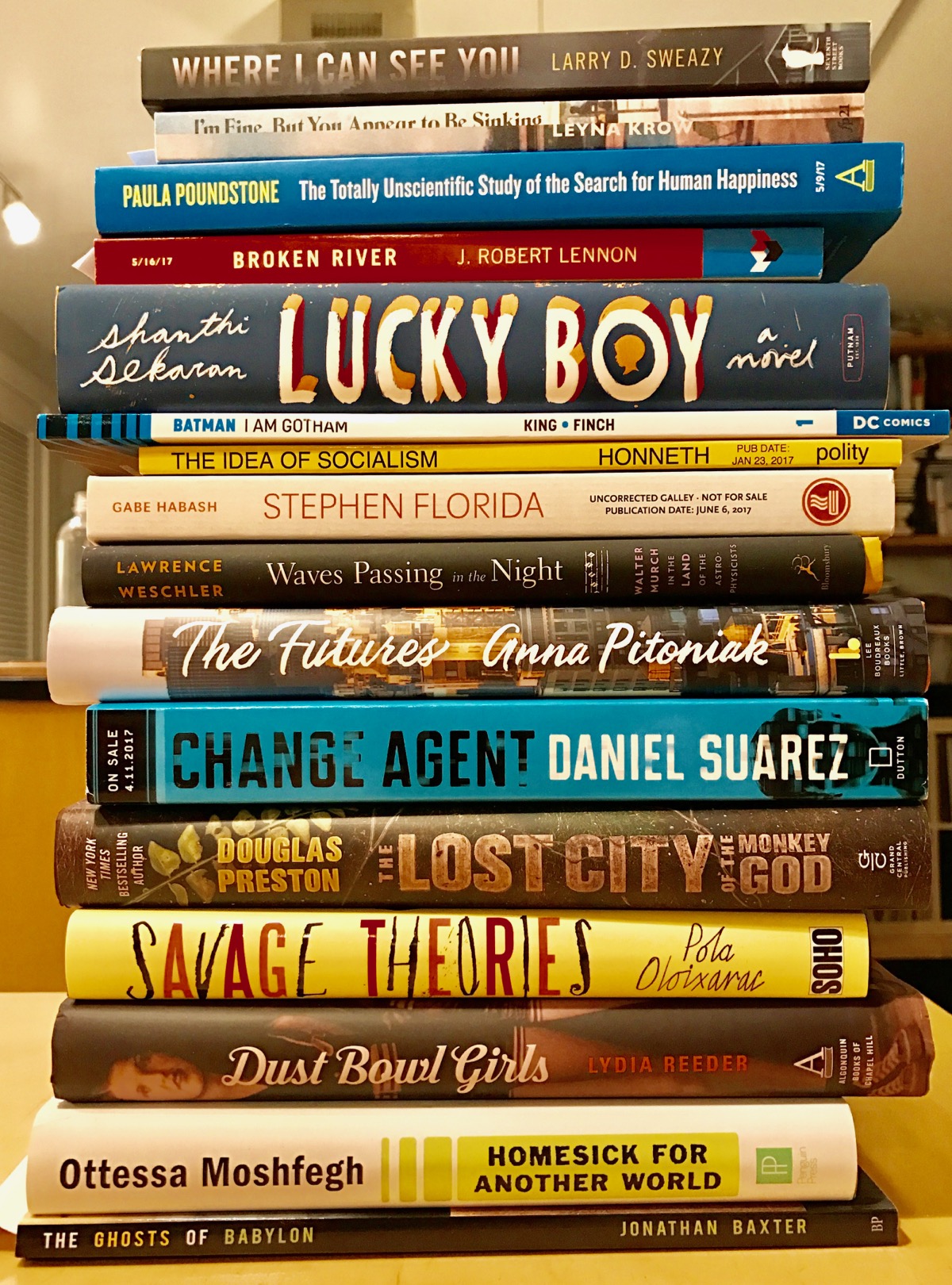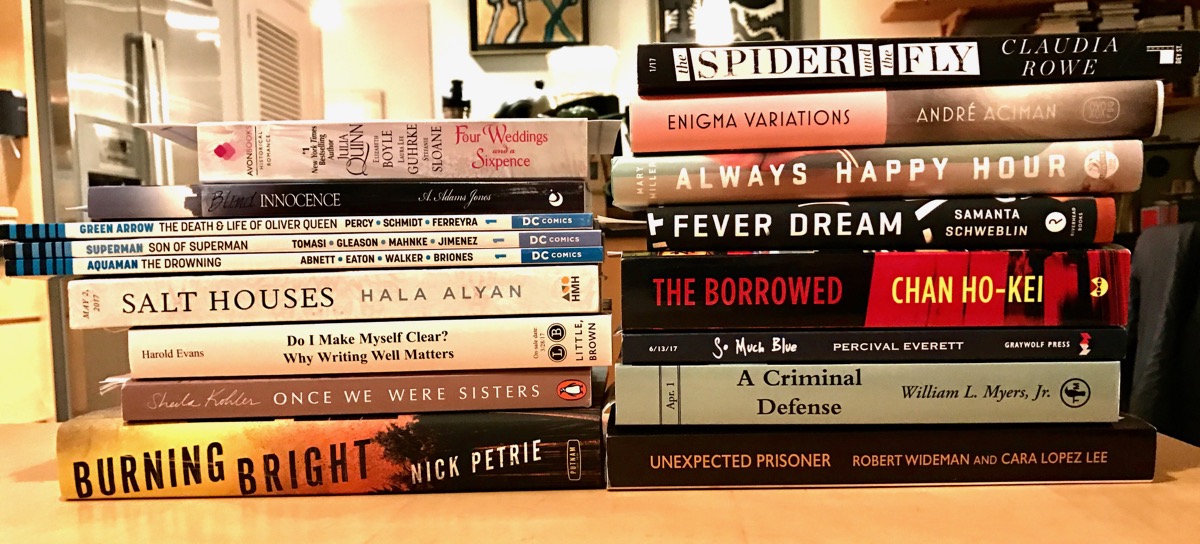Choosing a pope is messy, human work
If you're going to be traveling home after the holidays and you stop in the airport bookstore looking for something to read, you could do a lot worse than Robert Harris's new novel Conclave. It feels like a slight read, a novella that was blown out to fit into a novel — I thought I'd been sent a large print edition when I first opened Conclave and saw the huge font size — but it's the perfect length for a plane ride and it'll keep you turning pages through even the worst turbulence.
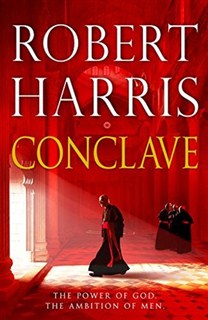
Conclave doesn't carry the emotional weight (Fatherland is so good) or the weirdness (Archangel is a deeply bizarre thriller) of Harris's earlier work, but it does enjoy a benefit that some of Harris's other thrillers (Pompeii, for example) enjoy: meticulous research. The book takes place in the weeks following the death of a Francis-like reform Pope, and it takes you inside the papal conclave through which bishops select the next pope. Harris rightfully makes the ceremony the central figure in the book. The social constructs built around the selection of a pope is fascinating stuff, combining the gaudy ritual of mass and the petty squabbles of office politics.
As the congress of over one hundred cardinals struggle to select their next leader, the protagonist of Conclave, Cardinal Lomeli, slowly unravels the mystery surrounding the deceased pope's death. It's a thriller starring an old man who isn't entirely sure he's starring in a thriller, and Lomeli makes for a terrific reluctant detective.
Though the structure and the rhythm of Conclave is note-perfect — Harris is nothing if not a brilliant conductor of thrillers — the final twist is clear as soon as Harris hints at it the first time, and the twist is handled with none of the care and precision that Harris slathers upon the rest of Conclave's proceedings. It's a sour bit of thoughtlessness to top off the richness and care of the 200 pages before it.
I read Conclave entirely on one flight, and it was just about the ideal plane-read experience: a fascinating world, relayed clearly, with the engine of a zippy genre plot to push things along. If you're fascinated with the ritual and ceremony of the Catholic Church, this book will feel like a peek behind the gilt-edged curtain.
The Body Mutinies
When the doctor runs out of words and still
I won't leave, he latches my shoulder and
steers me out doors. Where I see his blurred hand,
through the milk glass, flapping goodbye like a sail
(& me not griefstruck yet but still amazed: how
words and names — medicine's blunt instruments —
undid me. And the seconds, the half seconds
it took for him to say those words). For now,
I'll just stand in the courtyard, watching bodies
struggle in then out of one lean shadow
a tall fir lays across the wet flagstones.
Before the sun clears the valance of gray trees
and finds the surgical-supply shop's window
and makes the dusty bedpans glint like coins.
Pin-ups from the 50s, advertising from the future
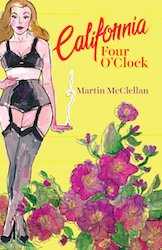
Our sponsor this week, Martin McClellan, wants you to know he just published his entire novel to read online for free!
Wait — isn't he one of the co-founders of this site?
Sure is!
Isn't that a little...unethical?
How so?
Well, I mean, he's advertising his own product on the place he runs. Kind of like a conflict-of-interest isn't it?
No, not really — it's what, in the tech world, they call "eating your own dogfood", or using your own product. He wants to make sure that when other people buy sponsorships — like, maybe to announce their book is online for free, or maybe that they're putting on an amazing event, or just to publish a full chapter from their book on this site so all of our readers can see it and decide if they want to read more of the book — he wants to make sure that when they do that, they'll have a great experience, and feel like the sponsorship was a good value.
That sounds pretty cool, actually...
It is! And because we've just released a new block of sponsorships for the new year — oh 2017, how we have awaited your arrival! — there are six months worth of slots you can grab right now, to make sure you get the slot you want.
So, what's the book about?
It's about pin-up painters and photographers in the 1950s. It's about Twentieth century art, mid-century queer culture, about lust and love and not knowing what you want with your life. It's called California Four O'Clock. Here's Chapter One, on Medium, or check out more information on our sponsors page. Give it a try!
And when you're ready, book your dates now for your own sponsorship!
A Bookseller's Holiday: A mapless atlas of the weird
(Every Monday in December, we're asking a local bookseller which books they'd like to receive for a holiday gift. Our final bookseller is Emma Nichols, who works at Elliott Bay Book Company and who also hosts the wonderful Drunk Booksellers podcast. Emma chose Atlas Obscura: An Explorer's Guide to the World's Hidden Wonders, by Joshua Foer and Dylan Thuras.)
I’m really into maps and so the name struck me. But it’s not a book about maps, it’s about weird places all over the world, and I’m very interested in the unknown and the strange.
The Christmas they left us alone
Did you hear the one about Robert Downey Jr, back when he was struggling with substance abuse? One night, all lit up on some combo of booze and pills and who knows what, he broke into a dark house, went into a little girl’s room, stripped down, and passed out in her empty bed. When the family came home they found him gently snoring. Imagine them there, in the doorway, the girl, the dad, the mom — maybe a brother — looking at this handsome movie star asleep in the bed. The dad said he wasn't threatened, since Downey's clothes were so neatly folded and placed just so on his daughter’s little bedside chair.
I thought of that story when I read news of a fellow who woke to the sound of his daughter crying, and found a strange man holding her in his living room. Imagine being that dad, all bleary, coming into a dark room following your girl's cries and seeing a silhouette there, swaying, holding her. Trying to soothe her with too much boozy emphasis — like a drunk had put too much english on the cue ball of communication and ripped the table felt.
My dad was a drunk. He sobered up and earned his twenty year coin before he passed. That's nearly a third of his life spent making his amends, so I'm not going to begrudge him his successes by picking apart his all-to-numerous failures. But given the day, maybe it's the right time to tell this one story.
It was Christmas Eve. I must have been nine or so, which means Glory was five. You’d think I’d have this timeline all nailed down, but I can’t recall, without looking at records, if my mom had died yet. She wasn’t there, so it's possible. But maybe she died the next year after Thanksgiving, and this was the year she was out of town at the bedside of her own sick mother.
Dad liked a formal Christmas Eve. He roasted duck, with braised greens, a little salad with candied walnuts and mandarin orange slices, and an apple pie. He spread it all on the lacquered table with the lace runner, and killed the lights so we could dine by the soft glow of tall white candles in silver holders. He drank beaujolais; he served us Martinelli’s sparking cider in wine glasses which made us feel so grown up. We talked about Santa coming that night. He told the story of Jesus, but Glory stopped him, because she hated the part when Jesus came back to life. Dad hushed her and said “That’s the Easter story. Let’s talk about Mary and Joseph and the Three Kings.”
I remember thinking about that number three. Three Kings. The trinity. Three ghosts in a Christmas Carol. Three of us at this table, all safe and warm. What was it about threes?
After dinner, after we did the dishes with Dad washing, and Glory drying, and me putting them away, Dad pulled me aside.
“Can you get the presents out after Glory is asleep?”
“Why can’t you?”
“I’m going to midnight service.”
“That's not for four hours.”
“Midnight service is at 10pm,” he said, which is still confusing to me to this day. “I have to help set up.” So Dad went to church and left me in charge.
Glory and I had a nice evening of it. We sang a few carols and made sure the tree was looking sharp. We stayed up later than we should have, and ate all the cookies we were supposed to leave for Santa. Glory cried, worried that Santa wouldn’t forgive us for eating them. I convinced her that Mrs. Claus put Santa on a diet and he would prefer some of Mom’s Wheat Thins, anyway, so we really did him a favor.
I read Glory The Night Before Christmas, the one with pictures by Gyo Fujikawa, the one with the pink stripes on the cover. It was nearly 11:30 when she finally fell asleep.
I knew where Dad was: in the basement of the church where the choir practiced. Sitting at the folding table with Peter Pershing, and Tom Mildebrand. Tom was the church Sexton, so he held the keys to the place. Those three would sit around that table and play cards, drinking rye until there was no rye. We three drunks. Dad would make a late night of it. I figured we’d be opening presents in the morning without him, unless he just drank all night and didn't sleep, in which case he’d be there, still drunk, saucy and cheery, until he passed out in his reclining easy chair.
I pulled all the presents out from under Mom's dresses in her closet. I walked them into the living room and put them under the tree. I made it look nice, too, pretending I was Santa, and I thought about how it would look to Glory when she came in that morning. I ate the crackers, making sure to drop some crumbs, and drank the warm milk. I brushed my teeth and got into bed myself around midnight.
When I think about that man whose daughter’s cries awoke him, I think about how you never really hear the first cry in the night. You only wake, aware and concerned, in the darkness of your room. You wait for a signal, some noise or triggered sense to explain why you are not asleep, to explain why your heart is thumping and your endorphins are whispering “danger”. Then comes another cry, another “Mom!” or “Dad!”, or if you’re in my adult house, today, a knock at the wall that separates your room from your child’s.
So it was that Christmas Eve I woke suddenly, panicked. My room, in the attic, was sometimes drafty, but the cold in the room right then was unnatural. My flesh pimpled at it, and I pulled the covers up over my mouth. Yes, it was snowing outside, but this cold was deeper, more unsettling. This cold felt cruel and intentional.
Then I heard what woke me. A three-sound knock: Knock. Knock. Knock.
It wasn’t from the front door. It was almost wood-on-wood, like it came from inside the walls. Years later I lived in an old building in New York City and the radiator coming on had this quality — like the building itself was calling out to you. Like our old house, the house my Dad grew up in and the one his Dad grew up in, too, was trying to warn me about something. Danger! Be aware! Tonight is not still and safe!
Knock. Knock. Knock.
The breath coming out of my nose was visible in the chill. Was it Dad making that noise? Was he home? Every fiber of my being wanted to stay in bed — begged me not to move — but I had to know. I feinted a few times, then got my nerve together and threw back my comforter. I ran to the window, wiping the fog from the pane with my pajama arm, and looked out front to see that his car wasn’t there. No tire tracks in the fresh sheet of snow lining the street, even.
Dad wasn’t home.
Knock. Knock. Knock.
Was it Glory? Did she need me? I felt absolutely defenseless and alone, but Glory was so young. I had to protect her. I pulled on my wool robe, shivering against the insane chill — it felt like I would never be warm again — and with my teeth clattering, crept down the stairs, each groaning under my foot.
Opening her door, I saw her there by the yellow nightlight, asleep in bed. She was whimpering, as though her dream had been infected by the chill in the air. As if the house were trying to warn her by making her dreams unsettled.
Knock. Knock. Knock.
The sound was just as mysterious — as placeless — in her room as it was in mine. It came from all around, but if you turned as it sounded, its source was no clearer to you.
Knock. Knock. Knock.
I put my hand on her forehead, which was clammy.
Knock. Knock. Knock.
She tightened her brow, and looked like she was about to cry.
Knock. Knock. Knock.
Was it getting louder? My teeth clattered, the cold pulled my muscles taut, and a panic was rising my spine.
Knock. Knock. Knock.
But I didn't want her to worry. I said “It’s okay, Glory. It’s okay.” She let out a sigh, and her furrowed brow loosened.
It was like an exhale, then. The room warmed. It just felt normal, like waking from a nightmare and the still of your room feels like true comfort.
I sat on Glory’s bed for as long as I could stand it, just listening to the old house ticking and settling in its normal way. I waited for another knock, sure one would sound any minute, but none came.
The hall clock read 1:30 when I went back up the stairs to my own bed. I cursed Dad for leaving us alone. He should be here now. Why did I have to get out of bed to check on Glory? That was his job. That was a job he gave away so easy. I hated him so much right then. I hated him for not caring. I hated him all the way back to my bed, still unnerved over that sound and where it came from. I hated him all the way back into sleep.
It was a child’s cries that woke me second. No stillness of the room this time — no wondering what it was that woke me. The cry was continuous, penetrating. I stumbled down the staircase, slipping and falling on my behind and thunking down two stairs. When I reached Glory's bedroom and flung open the door, sure I would see her sitting up in bed with tears in her eyes, she was still asleep, in the same position that I left her.
I can't explain that feeling of looking at my sleeping sister and hearing another child wailing. The mental shear of this information had the effect of misfiring all my logical neuron patterns. It was a storm of impulses and confusion in my head, that calmed, like a growing dark, into a pure, heart-seizing panic.
I went over the facts: there were no other children in this house. There were no other children on this block. But there was a child crying, and it was coming from downstairs. From inside the house. From down by the tree.
I padded down the hall. My first step down, in my bare feet, was like stepping into a pool of cold water. It was that cold, again, settled like a fog over the first story of the house, and here I was, descending into it, following the cry of a child that could not exist.
On the wall, a light from the street hit the reproduction of Christina's World that Dad kept there, the emaciated body of Wyeth's model climbing that dry wheat hill. It was almost animated in this light, a sickly, crawling animation that felt insectile, cursed.
Two steps more and I was up to my armpits in freezing cold, the cries echoing, growing, changing, and turning into a kind of word I couldn't quite resolve.
My feet were nearly numb with the cold, but down I went, white-knuckling the bannister. There was some light, I could see. A glow from the living room, and then my bare foot touched the frigid wood of the floor, I turned the corner of the stairs to look down the hallway where I could see just a bit of the tree, and saw that the white lights were turned on, and glowing brighter than I remembered them being. The whole living room was glowing.
But part of it wasn't glowing, I saw. Part of it was shadow. The shadow had a form, and the form was a man, standing there, arms at his side. Swaying a bit, as he blocked lights on the edge of his shadow when he moved across them, and it seemed like they blinked on and off. A man, in my living room, standing in front of my tree, and somewhere near him was an unhappy child.
That cry! That desperate wail! And the words made sense now "I hate you!" they said. "I hope you die!"
Then a large dark blur, the shadow of the man moving across the hallway entrance, blocking the light of the tree as he went across, throwing me into dark cold for a moment. A sound — that sickening sound of hard flesh on flesh, the dull muffled sound of a punch that is so different from that sharp thwack of movie violence.
The child's cry louder, more intense: "I hope you die!"
My breath like clouds in the hallway. I gasped, stepped backward into the wall, bumping the painting of the farmhouse. It clunked, twisting on its nail. I reached to steady it.
The cries stopped. A heavy footstep. A man's voice "Who's that, now? Who's there?" The light on the trees shimmered, as if the man asking made the electricity swell in their green cables.
Then that shadow blocked the tree again. That shadow in the entrance to the hallway. That shadow taking booming steps, coming from the living room towards me.
I shrunk down the wall, teeth clattering in fear and cold. I pulled my arms over my head to stop this devastating strangeness. I felt like a shivering skeleton, all the flesh of my body and soul stripped and flayed on the open rime furnace of horror.
And the footfalls came closer. The man, whoever he was, came to me with waves of ice. He was right there in front of me. I could see his foot, in a brown boot, and I was about to look up at him and see what terror he was about to unleash.
"Is it Santa?" came the voice, the familiar voice of a little girl.
On the stairs, there, half way down in her cotton nightgown with the little red flowers, Glory.
And in front of me, nothing. An empty hallway. The tree with its lights off. The house warm, again. And I, on the ground hunched.
"Is it Santa?" she repeated.
I stood. Stepped tenderly the living room, but all was as it should be. The fear left me, like I was a cask uncorked. It drained from me, and relief came in. My feet were cold on the ground, but the normal cold of bare feet on hardwood at night. Not the unnatural frozen fear of before.
I felt a soft hand in mine. Glory, beside me, looking into the darkness at the tree.
"He did come!" she whispered, like we were in a church looking at a sign of divinity.
"It's not morning yet," I said. "We can't open them yet."
"Okay. I'm having bad dreams. Can you sleep in my room?"
I was glad she asked, because I wanted that too, but didn't want her to think I was too chicken to be on my own.
"Sure," I said.
On the way back upstairs, I looked out the front window. Dad's car, still not home. The clock said: 2:30. Glory and I crawled under her blankets. I was sure I wouldn't sleep with everything that night had held, but fear has its tolls, and on me the stress of it acted to put me right out. We both fell asleep in minutes.
It's all threes. All of these stories happen in threes, don't you see? That's the point of them. They want to show you the pattern early on so you'll know. What have we met yet? The holy ghost? The Ghost of Christmas Past? The son? The Ghost of Christmas Present? What is left, then? Who is coming? Who is left to break into this house? To breach the barrier we all hope guards with our walls?
I don't know what woke me the third time. Maybe it was Glory, who was all elbows and knees in her sleep; who somehow ended up sideways in bed, and stole all the covers to boot.
It was quiet in the house. I did not feel that supernatural chill, and I was not scared. I remembered, as palpable as recalling the taste of grape bubble gum, the fear and cold of before. But I didn't feel them now.
I rose, left Glory to her slumbers. I went down the stairs again, down into the entry hall. Down into the living room to see all the presents. The pine smell of that tree hit me, and it was a comfort I can't quite place, like being outside on a crisp night in the woods when everything is well and that scent makes makes the animal in you whole.
I crouched on my heels, just smelling the air, a certain rare Christmas spirit filling me. It was welcome, that animal peace of love and safety, of security and hope, that even in the most desperate times can find its way into your deepest self.
"Do you think she'll like it?" came the voice. That deep voice, deep from his chest, a man used to being heard and followed.
There, in the dark, sitting in his easy chair. Dad. Home, now.
"The house. Do you think she'll like it?"
I could see it then, in the dim light — it wasn't there when I put out the wrapped presents. A doll house, made by hand. A three story cut-away with a thatched green roof. It was tucked under the tree. Did he make this for her? Did he bring it home tonight? It was marvelous craftsmanship. Gabled windows, with scroll work around them. Fully furnished. A family inside. Couches, stoves, toilets, everything.
A little decorated tree in the living room. By the tree, a man, holding a child with one hand, the other raised as if to strike.
"Was your dad mean?" I said, quiet, under my breath.
He didn't answer. Not for a long time. It was quiet, and I studied the doll house as best I could in the dimness, looking at the little brass doorknobs, the curtains, the comforters on the brass beds. Then his voice broke through, sudden and booming.
"There was a man who used to live in this town," he said. "A man who everyone knew was good. He was kind, set aside time for people in need. Set aside money to help those without. The kind of man we all would like to be, but who so rarely we can find it in ourselves to act like.
"This man had a sleigh, and he would load it with children every Christmas Eve, given enough snow, and he would hitch up his horses, and he would drive them on a ride through the dark. They'd go up the lake onto the hill, around that bluff curve to the top where they could see the town. Then he'd ride them back. They'd gather back at his house where their parents were making merry, and there would be hot chocolate, and gingerbread cookies, and everyone would sing carols.
"Except one year a boy who was older, and hated the man because the boy's own father had not achieved the things that the man had, decided he was going to play a joke. He snuck up on the hill, to the part where the road curves on the bluff, and he spent the afternoon making himself an arsenal of snowballs. His plan was to pelt the man and the children in the sleigh as they went by. He was going to get them cold and wet under their blankets. He was going scare the little ones, and scare the girls, and just show that not everything is perfect all the time. He was going to show them what the world was like for real. Not everybody gets what they want. Not even for Christmas."
He stopped. I looked over at him, but his face was in the shadows. I looked away. It felt wrong to watch him when he seemed to be having trouble telling the story. I waited, looking at the roof of the doll house, built tile-by-tile. Looking at the front door with the inset panels. Looking at the window boxes full of tiny wooden painted flowers. He started again when he was ready.
"And so he waited, and as he waited he pictured perfectly what the moment would be like, and how they'd all cry and get pulled away on the sleigh, their upset floating on the wind as they went into the distance. He thought about how this memory wouldn't be a storybook tale for the kids. He saw how they would learn their lesson.
"He planned how he would let them go by to have their view of the town, so they'd think on the way back down the hill that everything was just dandy. They'd be on the decline of their ride, the last moments when nobody would expect a thing.
"And so when the horses went by up the hill, he let them go. The horses were panting with the effort, steam coming from their nostrils. The sleigh bells danced and sang, skids shushed on the crunchy, fluffy snow."
"Some time later his patience paid out. The sleigh came down the hill, and maybe, according to some, it was going too fast and the man who everybody loved should have been holding the brake tighter. But maybe it was just fortuitous timing, one of those acts of fate nobody could predict, least of all a jealous boy who can't imagine the world past his own narrow purview.
"His moment upon him, the boy stood, and he took aim, and he let loose a volley of snowballs aimed at that sleigh of children looking forward to their hot chocolate; a sleigh he had been party to in previous years, under whose blankets the chill was kept at bay, under whose pull he felt safe and warm for the all-too-brief amount of time he was away from his own parents.
"A young one, all of four, cried as a snowball hit his face. He aimed for the youngest, and hit a girl about his own age with a particularly slushy ball. He pelted them, laughing, guffawing and finding it hard to throw through his merriment at their confusion. Children were screaming, pointing. It was the kind of chaos he had wanted. It was all going according to his plan, just perfect.
"And then a wild throw hit a horse, right on the blinder, right on the eye. A skittish mare. She bucked, and scared the other horses. An animal panic took them, and they pulled the sleigh off the road, and one skid went up on some rocks.
"Imagine that boy, holding snowballs in his hand, dozens more stacked and ready to go, watching as that sleigh slipped down the slope and crashed onto that lake, partly frozen. As the sleigh teetered for a moment, before a horse, struggling, cracked the ice with its hoof. As they broke through. As children, too young to swim, were tossed into black water. As all of them weighed down by wool and boots and gloves, went in right at the point where the lake goes deep, and the only thing that connects the water to land is sharp, iced, slippery rocks. Imagine the inhuman cries of the horses, attached to that heavy sleigh. Imagine the sounds children never had time to make."
I could picture it. I could picture that boy, his frozen face as he saw things go terribly wrong. I could picture him knowing he had to decide: go help at the edge of the water, or run. One of those moments in life you could never forgive yourself for if you make the wrong choice.
"What happened?" I said, and I noticed my breath in the air. The cold was here again. I was freezing. "Did people die?"
A wind at my back, a crash, a sound. I turned, and there in the open front door was Dad. Slumped against the frame. His car, half on the snowy lawn, behind him. His keys dropped his hand to and clattered on the floor.
His chair? Empty. The doll house? Gone. The chill was from the open door. For the first time, the cold I felt had a source.
I walked to him. "Come on." I yanked his hand and he stumbled inside. I closed the door. Locked it. Placed his keys on the hook. I didn't even bother with the stairs, I just led him to the living room, his arm around my shoulder, leaning on me. Mumbling to himself. Thanking me. Saying he loved me.
I put him in his chair, and reclined it with the bar on the side. Took off his soaking wet wingtips. His thin cotton socks, his feet were pure ice. I ran up the stairs and got his pillow and his comforter from his bed. Covered him so that he'd warm up. Made sure his feet were tucked under the blanket.
As I walked away, "turn the lights on," he said.
"The lights?" I asked.
"The tree. Turn the tree lights on," he said.
I did. I plugged them in, and the tree glowed. You could see the presents underneath so clearly. You could see little white glowing dots reflected in every window. You could see the crumbs on the plate and the empty milk glass. You could see Dad, in his chair, his eyes listing, his head lolling.
"Beautiful," he said, his puffy face warm in the glow. And then he was asleep.
3:34 said the clock on the wall as I walked up. I was out in minutes, this time. Dad was home. Maybe he was passed out, but he was here. I was off duty.
I slept until Glory jumped on my bed to wake me.
"It's Christmas! And Santa's come! He ate all the crackers!"
We went downstairs together to wake Dad and see what was wrapped in those presents under the tree. We went down into the warm old house, a place in the universe moving across time.
A place in time moving across the universe.
Nerve Endings: The New Trans Erotic - Kickstarter Fund Project #51
Every week, the Seattle Review of Books backs a Kickstarter, and writes up why we picked that particular project. Read more about the project here. Suggest a project by writing to kickstarter at this domain, or by using our contact form.
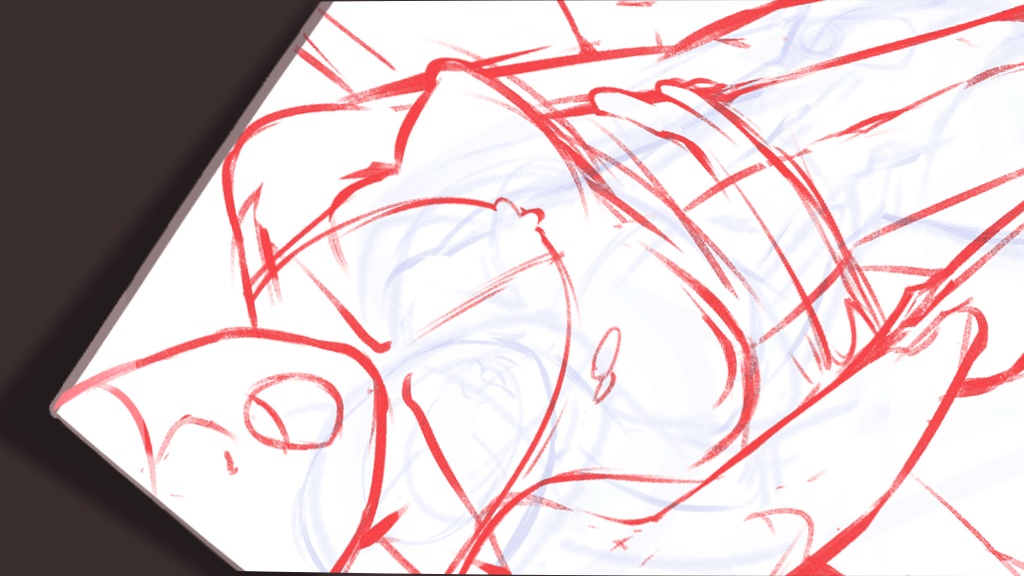
What's the project this week?
Nerve Endings: The New Trans Erotic. We've put $20 in as a non-reward backer
Who is the Creator?
What do they have to say about the project?
Thirty stories about sex, sexuality, and relationships, by authors connected to transgender community.
What caught your eye?
This project's creator, Tobi Hill-Meyer, has appeared on our site before. She's taking a pro-active approach to an issue she puts this way: "Too often trans stories have been written from a cis perspective, with a cis reader in mind, addressing cis concerns about trans people rather than our own concerns. This is especially true when it comes to erotica: literature that deals necessarily with bodies, with our relationships to them, and with our relationships to one another."
Since the trans community is largely commodified by the larger porn world, being able to tell their own stories in their own way is a pretty important idea. Again, in Hill-Meyer's words: "So much of the hostility and bigotry trans people face is focused around sexuality: anti-trans bathroom bills conjure fears of "perverts," straight men frame trans women as "deceptive." Others see us as hypersexual and expect us to be available for sex practically on demand, and doctors have historically denied access to hormones and surgery to those who don't have the "right" kind of sex."
Why should I back it?
At this point, with the project already well-backed, it's about the stretch goals. For each one, the contributor's payment goes up. A nice feel-good bonus. It also seems like a fantastic, well-thought out anthology, both for trans people looking for better representation in their dirty stories, and for people looking to find out more about the experiences and challenges of being trans.
How's the project doing?
13 days to go, and 257% funded! They're totally killing it.
Do they have a video?
Kickstarter Fund Stats
- Projects backed: 51
- Funds pledged: $1020
- Funds collected: $900
- Unsuccessful pledges: 3
- Fund balance: $20
Why I accidentally gave Short Run the short shrift
A reader wrote in to address an important omission from my piece that reviewed 2016's highs and lows. I did not, she wrote, mention Short Run even once.
And you know, that reader is correct. Short Run was fabulous this year, and I should've mentioned it. This is part of the problem with year-end pieces, and why I'm not fully comfortable with writing them: there's never enough room to make everything fit, things get forgotten, and then good people get their feelings hurt.
Let me explain why Short Run was left out of my year-end retrospective: Short Run happened the weekend before the election, and I was a wreck when it happened. I was nervous, I was unable to focus, and I couldn't fully engage with the Festival. (I said as much in my columnn about Short Run that week.) And then the festival completely disappeared from my memory after Election Day because, well, the world blew up. Already, that week leading up to and two weeks after the election seem to be dissolving into a weird foggy amnesia in my brain.
But this is not an excuse. Short Run exemplifies the work of dozens of volunteers who contribute thousands of hours to the festival. Dozens of exhibitors, many of whom came from around the globe, came to Seattle to sell their work. Thousands of Seattleites came out to celebrate comics and small press and community. This work shouldn't be ignored because of my failure to function as a human being. It was a mistake, and I regret it. I apologize to Short Run's founders and volunteers and exhibitors.
Especially this year, a year in which the APRIL Festival announced that they're shutting down and in which Intruder magazine ceased publication, Short Run deserves our appreciation and our thanks. They've grown remarkably in such a short time, and they've become a hub of Seattle's literary community and one of the brightest spots in our literary calendar. We'll continue to cover them in years to come, and I hope they'll forgive my omission, and accept my word that we'll do better by them in the future.
The Help Desk is on holiday
Even advice columnists need to take some time to recharge. Our Help Desk columnist, Cienna Madrid, will be taking this week and next week off. She'll return on the first Friday of 2017. You can read the full archive of her columns right here and, as always, if you need any literary advice, please do send an email to advice@seattlereviewofbooks.com.
Portrait Gallery: Jessica Bennett
Each week, Christine Marie Larsen creates a new portrait of an author for us. Have any favorites you’d love to see immortalized? Let us know
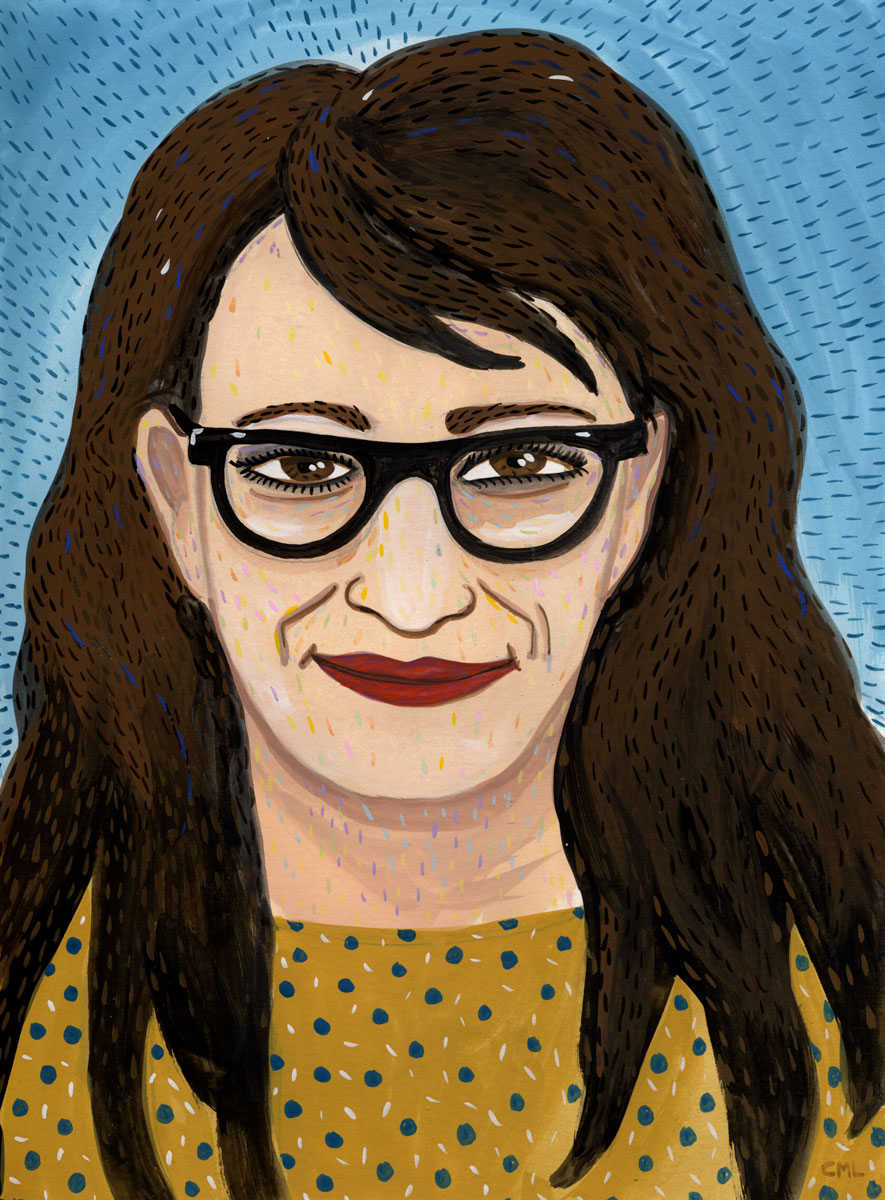
Tuesday December 27th
Feminist Fight Club reading
Leaning in is so three years ago: Jessica Bennett says it’s time for working women to punch back. Her new book is a “guide to navigating subtle sexism at work, providing real-life career advice and humorous reinforcement for a new generation of professional women.” Let’s go crush the patriarchy.
Town Hall Seattle, 1119 8th Ave., 652-4255, townhallseattle.org. $5. All ages. 7:30 p.m.
Criminal Fiction: December's Children
Every month, Daneet Steffens uncovers the latest goings on in mystery, suspense, and crime fiction. See previous columns on the Criminal Fiction archive page
Shorter days are made brighter by clever short stories, both dark and sparkling. Nobody does a twist in the tale like O.Henry unless it’s Edith Wharton or Edgar Allan Poe. Or, try a more modern master via any of the stories in Roald Dahl’s un-fairy-tale collections for adults: Switch Bitch, Kiss Kiss, Someone Like You.
Reading around: new titles on the crime fiction scene
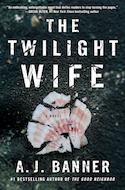
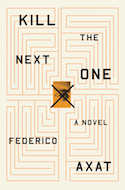
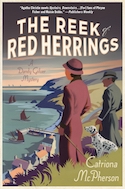
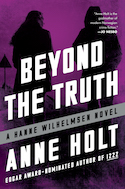
The Quintessential Interview: Jayne Ann Krentz
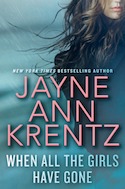
What or who are your top five writing inspirations?
Love the archetype of the modern American private investigator, Robert B. Parker’s Spenser, for example. Love the myth of the “amateur sleuth,” the character without acrime-fightingskill-set who gets caught up in a dangerous mystery – an adult Nancy Drew. Love the romantic-suspense theme of two people learning to trust each other in order to survive. Love stories that feature a hero and heroine who share certain core values: honor, determination, courage and the ability to love. Love stories of revenge. All of these things inspire me.
Top five places to write?
My office. Hawaii. My office. On board a really big ship. My office.
Top five favorite writers?
- Christina Dodd
- Susan Elizabeth Phillips
- Elizabeth Lowell
- AJohn Sandford
- Robert B. Parker
Top five tunes to write to?
Can’t write to music. Too distracting. It’s a can’t-walk-and-chew-gum-at-the-same-time thing, I guess.Top five hometown spots?
- Frank’s Quality Produce in the Pike Place Market
- DeLaurenti
- Specialty Food & Wine in the Market
- Seattle Mystery Bookshop
- Nordstrom
- Page 2 Books in Burien — yes, it’s in Burien but I think that’s close enough to be considered a hometown spot
We are so excited that Brianna Wu is running for Congress in 2018 and we hope that she's the first of many Seattle Review of Books contributors to run for public office. (I'd love to vote for Mayor Nisi Shawl one day.)
Thursday Comics Hangover: Women tell stories in order to live
Last week, I was thoroughly disappointed by a comic book that was supposedly about the enduring power of stories. This week, I’m entirely enchanted by a comic that demonstrates the empowering endurance of stories. Isabel Greenberg’s hardcover comic The One Hundred Nights of Hero is a story about stories wrapped in other stories, including a Scheherazade scenario in which a woman must tell a story so compelling that it distracts a lecherous man from advancing on her, night after night.
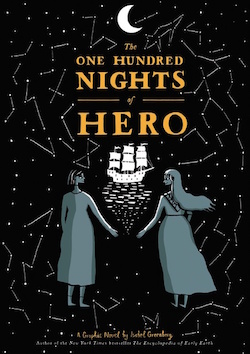
Greenberg’s art is deceptively crude. On first glance a panel in which five sisters gather around a candle in the midst of an inky night looks as though it could be a woodcut, the lines are so primitive and scratchy. But look a little closer and you’ll see finer details. One sister’s hand is splayed out on the ground for balance, another’s finely wrought braid winds down her back.
Throughout the book, Greenberg shades scenes with splatters and sprays of ink that look at times like Jackson Pollock took control of the pen. But those sprays of ink aren’t mistakes. In fact, they serve to remind the reader that the story they’re reading is ink on paper, a happily primitive medium that Greenberg uses to great effect.
Many of these stories are about the enduring power of women, and the unthinking malevolence of men. (The moral of one story: “Men are false. And they can get away with it.”) In one story, a woman reveals to her husband that she can read by writing “I LOVE YOU” onto a fogged window; the illiterate man then concludes that his wife is a witch who has cursed him with a magical spell.
These women revel in words and stories and books:
They read aloud to each other, they wrote great, swirling sentences in ink and charcoal, in mud and paint and pencil. They luxuriated sinfully in that most beautiful of all things: The written word.
These stories do not all have happy endings, but they are all meaningful tributes to smart women who persevere even when the entire world conspires against them. These are stories of gods and sailors and lovers and, most importantly, sisters. It’s a never-ending puzzle box of stories about stories, and the important role that women play in keeping stories alive for future generations. This is a book that will teach you how to fall in love with books again.
Loud Mouth Lit reading series launches in January 2017
Seattle-area writer Paul Mullin just announced that he's kicking off 2017 with a new reading series called Loud Mouth Lit. Admission is free, it happens at Greenlake's St. Andrew’s Bar and Grill, and the first reading happens on January 31st at 8 pm, with new outings on the last Tuesday of every month thereafter.
Loud Mouth Lit looks to be a nice blend of literary and theater influences, bringing together Mullin's experience as a Stranger Genius Award-winning playwright and a memoirist. Mullin says upcoming readers include "Seattle’s favorite playwright/ puppeteer raconteur Scot Augustson" and "Playwright, screenwriter, and smut virtuoso Kelleen Conway Blanchard."
Save the date for the first Loud Mouth Lit and keep an eye out for more announcements from Mullin, who seems to be gearing up for a very productive 2017.
Your Week in Readings: The best literary events from December 21st - December 27th
Wednesday December 21st: Take Back the Sky Reading
Prolific Seattle sci-fi author Greg Bear delivers one of the last readings of the year at University Book Store. His latest novel is about a marooned group of space soldiers who await the arrival of a malevolent alien force they call “The Antagonists.” Bear’s book is a sci-fi military epic that travels across the universe to discover the secret of life. University Book Store, 4326 University Way N.E., 634-3400, http://www2.bookstore.washington.edu/. Free. All ages. 7 p.m.Thursday December 22nd: Punk Rock Flea Market
Those of you who have lived in Seattle long enough to remember the Value Village on 11th can probably automatically summon the store’s smell to mind — a dusky blend of creosote and loved objects. You can experience that smell one last time as the building hosts Punk Rock Flea Market before being destroyed in the new year. Find all kinds of treats from local vendors—including literary artists like erasure poet Jenessa Wright—for three days only, before it’s all torn down.Value Village Building, 1525 11th Ave, http://punkrockfleamarketseattle.com. $1. All ages. 4 p.m.
Monday December 26th: Rainier Beach Library Tours
Seattle, happily, is a city that votes to support its libraries. Today, the Rainier Beach branch of SPL is hosting half-hour tours all day long to show off all the renovations it has recently hosted. Learn about the library and check out the building’s new look. If you’re lucky, the space might still have that new library smell. Rainier Beach Public Library, 9125 Rainier Ave S., 386-1906, http://spl.org. Free. All ages. Noon.
Tuesday December 27th: Feminist Fight Club Reading
Leaning in is so three years ago: Jessica Bennett says it’s time for working women to punch back. Her new book is a “guide to navigating subtle sexism at work, providing real-life career advice and humorous reinforcement for a new generation of professional women.” Let’s go crush the patriarchy. Town Hall Seattle, 1119 8th Ave., 652-4255, townhallseattle.org. $5. All ages. 7:30 p.m.What you need to do for literary Seattle in 2017
Book reviewing is a funny business. You’re expected to read, process, and devise a response to a text in a matter of weeks (at best) or (realistically) days. But really it takes months to fully digest a book, to contextualize it in your life and discern its full value. With that in mind, I’d like to open by talking about the books that stuck with me this year.
Out of the 100 or so books I’ve read in 2016, many of them have disappeared entirely from my brain — they didn’t make a mark. But others have burrowed in deep; I think about some of them every day. So now that we’re at the end of 2016, I’d like to talk about the books by local authors that branded my brain, that affected the course of my thinking and, therefore, my life.
It was not a great year for local novels, but it was a fantastic year for local novels-in-stories. Donna Miscolta’s Hola and Goodbye, about multiple generations of a Mexican-American community, feels even more relevant since the election of Donald Trump. Likewise Matt Ruff’s Lovecraft Country, about African-Americans fighting Lovecraftian terrors across the United States, and Nisi Shawl’s Everfair, a loosely packed novel that spans decades while unpacking the horrific colonialism behind steampunk, are sci-fi/fantasy novels that serve a broader political purpose. (Related: if you’re the kind of person who whines about authors “politicizing fiction,” you have no understanding of the history of literature and you need to shut the fuck up right now.)
Other standouts: they’re not linked, but I think some of the short stories in Matthew Simmons’s brand-new The In-Betweens are modern Northwest classics. For non-fiction, I’ve been thinking a lot about Lesley Hazleton’s heartfelt manifesto Agnostic, which extols the joys of admitting everything you don’t know, and Sarah Glidden’s Rolling Blackouts, which demonstrates the importance of good journalism. Both are invaluable guides for the year ahead.
Local poetry had a remarkable 2016, the kind of year we’ll be looking back on in wonder. Children of the future will ask, goggle-eyed, “You mean you had splendid new books from Hannah Faith Notess, Claudia Castro Luna, Don Mee Choi, and Ed Skoog — all in the same year?” We will nod sagely, as though we had anything to do with those books being written and published.
A few literary events will go into the hall of fame, too: the sublime Jane Wong reading her poem “Aphoristic” at Lit Crawl in November, Quenton Baker launching into the Seattle literary stratosphere at a Hugo House event at Fred Wildlife Refuge, the APRIL Festival’s 5th anniversary reading standing as a living anthology of what makes Seattle literature so important, Sherman Alexie talking for an hour at Elliott Bay Book Company less than a week after the election of Donald Trump and never actually getting around to reading a single poem. (He talked instead about “grief poops,” those first cathartic shits after someone you love dies, and he hinted that perhaps he was under consideration to be the inaugural poet had Hillary Clinton won the election.)
Our bookish community lost a lot this year: poet Lucia Perillo passed away, the kids’ bookstore Mockingbird Books closed, APRIL announced that next year will be their last festival, the Furnace Reading Series shut down, the old Hugo House was torn down, poet Maged Zaher announced he was moving to Atlanta, Teri Hein stepped down from her leadership position at the Bureau of Fearless Ideas, the Intruder comics newspaper went out with a glorious orgy of cartooning.
The repercussions of this cursed year will keep rolling out in days and weeks and months to come. Seattle is guaranteed to take some hits in 2017. But we gained a lot, too: Third Place Books launched a much-needed bookstore in the south side of Seattle, Ada’s Technical Books expanded to open a new events space, the comics newspaper Thick as Thieves launched, Mattilda Bernstein Sycamore launched her new reading series Contagious Exchanges at the interim Hugo House location on First Hill, Outsider Comics in Fremont opened.
And here’s where you come in. You know that book you were going to write, the publishing company you were going to start, the reading series you’ve wanted to launch for years, the bookstore you want to open? Now is the time. Don’t delay any longer. We need you to make a space and say your piece and make a platform for others. We need you to help make literary Seattle a better place in 2017. We need you, period. Let’s get to work. Let me know how I can help. The world is waiting for you.
The Washington Center for the Book just announced their 2017 Seattle Reads title. From May 8th to 11th, Angela Flournoy will read from her debut novel The Turner House in locations around the city. SPL locations will carry plenty of copies of The Turner House in stock so you can take part. Here's their description of the book:
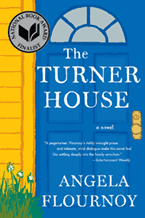
Angela Flournoy's multi-generational family drama focuses on the Turners, who have lived on Yarrow Street for over fifty years. Their house has seen thirteen children grown and flown; the arrival of grandchildren, the fall of Detroit's East Side, and the loss of a father. When Turner matriarch Viola is forced to move in with her eldest son, the family discovers that the house is worth just a fraction of its mortgage and Viola's children are called home to decide its fate. The Turners must reckon with how their past haunts-and shapes-their future.
We'll be writing about The Turner House in the months and weeks leading up to Flournoy's visit.
Book News Roundup: Seattle booksellers get bonuses, Penguin Random House employees get the shaft
Mary Ann Gwinn at the Seattle Times says that seven local booksellers from University Book Store, Third Place Books, Elliott Bay Book Company, Liberty Bay Books, Village Books, and Eagle Harbor Book Company have won "bookseller bonuses" from ridiculously wealthy author James Patterson.
Well, here's a disgusting bit of year-end fuckery: Penguin Random House, the large publisher that formed when Penguin merged with Random House, "has derecognised the National Union of Journalists and Unite for collective bargaining with its management," according to The Bookseller, which reports the move has left staff "nervous." Over 140 authors have signed a letter asking Penguin Random House to rethink this anti-labor position. All readers, authors, librarians, and booksellers should stand with Penguin Random House's union; we need more unions in this world, and if the somewhat civilized leaders of the publishing industry can't recognize the dignity of their employees, what hope does that offer anyone else?
E-book news site Tele-Read has recently stopped paying freelancers and so it is now running less news. Publisher David Rothman blames Google and Facebook for "siphon[ing] ads from us and burden[ing] us with bureaucratic requirements" for photos and content.
You should read Kevin Nguyen's year-end roundup and complaint about literary whiteness at the Millions. A taste:
...if you think Book Twitter is white, try going to a book event. These are almost exclusively white spaces, and being a person of color in them has become increasingly anxiety inducing. You drink with familiar people and strangers and just wait for someone to say something kinda fucked up to ruin your night. Just because my last name is Nguyen doesn’t mean I want to talk about Viet Thanh Nguyen’s The Sympathizer. I am not interested in hearing you talk about how attractive an Asian-American debut novelist is. And for the last time, as much as I love Ed Park, we really, really do not look alike.
Another book that wasn't prepared for a Trump victory
A little while ago, I wrote about a new phenomenon: books that seem completely different now that Donald Trump is president-elect of the United States. Over the weekend, I found another title to add to the ever-growing list.
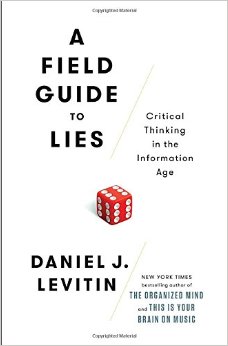
I'm sure when Daniel J. Levitin read in Seattle from his new book A Field Guide to Lies: Critical Thinking in the Information Age back in September, he probably seemed to have his finger on the pulse of the zeitgeist. After all, lies and untruths were everywhere in the media during the 2016 election, right? Right. And Field Guide is a very helpful guide to the way that news organizations and partisan hacks can misuse information, from statistics to maps to graphs. Levitin proves that no so-called "fact" is safe from manipulators up to and including Fox News.
But what Levitin couldn't see coming when he wrote Field Guide is the idea of fake news. These aren't manipulated facts, they're entirely made up facts. Levitin does address an early Trump campaign lie — Trump's totally false claim that he saw New Jersey Muslims celebrating on 9/11 — but it feels ike an aside, a parenthetical mention between the importance of sourcing facts and the perils of aggregation.
In fact, fake news turned out to be a major source of conflict in the 2016 campaign. Trump didn't just manipulate the y axis on graphs — he made up facts altogether, and there's not much Levitin has to say about that kind of whole-cloth tailoring.
This is not to say that Field Guide isn't valuable; it absolutely is. I learned a lot about statistics and probability and graphing. But Field Guide practically feels quaint in the age of our incoming president. At the very least, Levitin will have to add a new chapter for the paperback release to keep up with the sheer amount of lies flying around out there.
